According to a report by the National Institute of Mental Health, around one-third of Americans experience a type of anxiety disorder at some point in life. There are many ways to treat anxiety; you can exercise, take medications, practice mindfulness activities, or take up therapy. However, very few people actually know there’s one more thing that affects your brain and mood – “Food.” Food affects our mood, and it has been proven. Our mood and behavior typically fluctuate according to the ingredients we put inside our bodies.
There are two ways your food habits can affect your mental health – first, by adding healthy foods to your diet, second, by eliminating unhealthy ones.
Contents
Sugar and Artificial Sweeteners

We advise to avoid sugar for various reasons, but here we are talking about anxiety and depression. Excess sugar in your diet could be worse for depression. For that matter, artificial sweeteners play the same role. You may want them as a substitute for sugar, but an excess of artificial sweeteners can make you feel tired, change your mood, and cause a lack of concentration. Aspartame, one of the high-intensity sweeteners, blocks the release of serotonin, also known as the feel-good chemical in the brain. That is why it’s advisable to regulate the intake of both things.
Alcohol

Your nervous system is essential for your body. In simple words, it is responsible for taking information from all the five senses, understanding, thinking, controlling motor function, and reasoning. Alcohol is a depressant and has a harmful impact on your central nervous system. As we know, the central nervous system controls our emotions; any bad impact will directly increase anxiety levels. In short, the beverage you’re drinking to get rid of anxiety is actually making it worse.
Caffeine

On average, a coffee drinker consumes at least 3 cups per day. But do you know, what you’re thinking is an escape from stress is causing you more harm than good? A high level of caffeine can increase stress and anxiety and lowers the production of a feel-good hormone in the body known as serotonin. A low dose of caffeine is okay if you are going through anxiety. As a substitute, you can drink Matcha tea with almost no side effects. Remember, not only coffee, some medicines, and supplements may also have caffeine, so make sure you consult your doctor before taking these things.
Energy Drinks
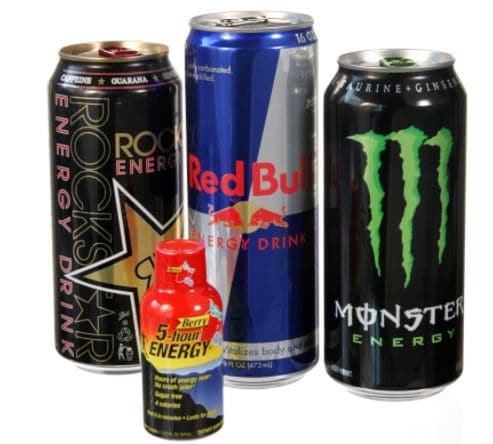
Energy drinks can contain pure concentrated caffeine. These drinks can make you feel jittery. If you regularly consume energy drinks, it is proven to increase the possibility of high blood pressure, seizures, and strokes in rare cases. A study in 2016 stated the link between consuming energy drinks and symptoms of anxiety, depression, mental health issues, and stress.
Fruit Juice
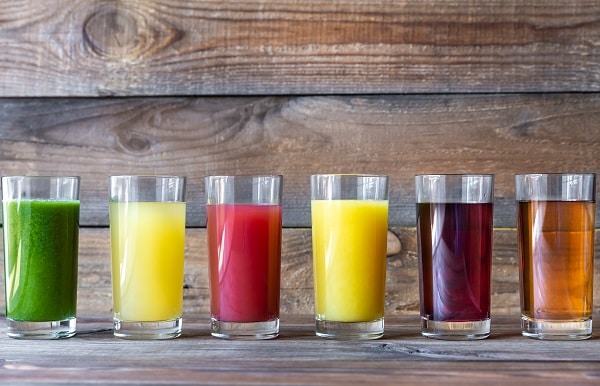
Consider buying an alternative to store-bought fruit juices or soda due to the high amount of sugar. Watch out for these three main sugars: sucrose, fructose, and glucose. Fructose naturally comes from fruits, but companies add an excess to the fruit juices and fruit-flavored drinks found in stores. If you want to have fruit juices, we advise you to make them at home. This way, you can eliminate any extra calories and sugars, which may negatively impact your mood and energy levels.
Processed Foods
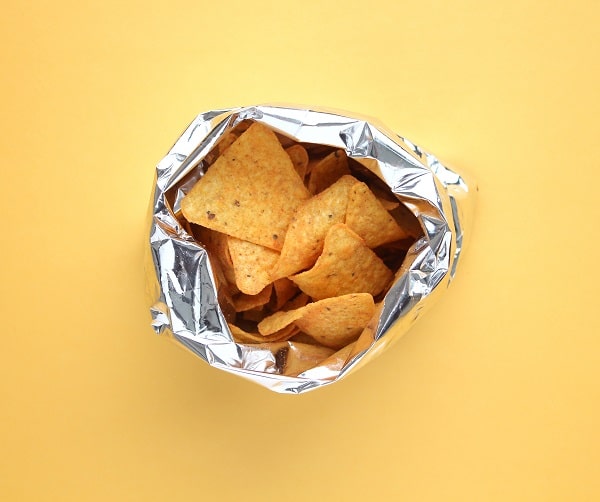
Processed foods could be worse for your mental state due to the presence of additional additives and preservatives. Processed food items pave the way for an inflammatory response in your body due to excess sodium and sugar. Sugar and refined flours are said to feed the harmful bacteria in the gut. Gut health is a direct contributor to chronic anxiety. That’s why it’s essential to avoid processed foods for good mental health.
Fried Foods

Who doesn’t like french fries, right? Fried food such as doughnuts, french fries, chicken nuggets, onion rings, etc., can cause depression and anxiety. Not only depression, but fried foods are associated with heart problems such as stroke, high blood pressure, and high cholesterol. Fried foods also have significantly less nutrition. Next time you go out with friends, make sure you order small fries instead of large ones or skip them overall.
Ketchup

Ketchup has up to 12 calories of added sugar in one tablespoon. Sugar is present in almost everything we eat. Don’t confuse yourself with the idea of sweet things having sugar only; the condiments, salad dressings, sauces we use have sugar in some form. Read the ingredient list before buying anything. Look out for sweeteners like molasses, corn syrup, maple syrup, rice syrup, invert sugar, or anything ending with -ose.
Dairy
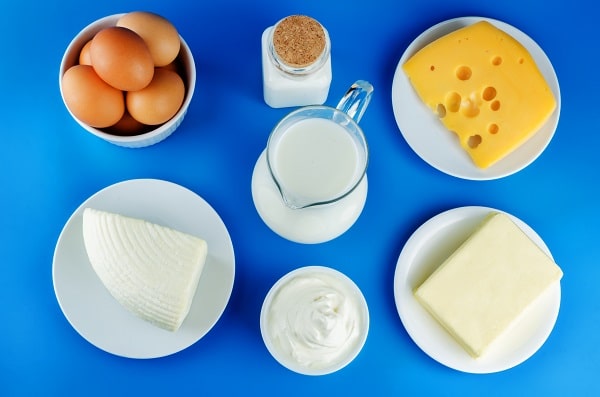
You all love cheese; who doesn’t? According to studies, people who have anxiety have experienced a rise in their symptoms after consuming dairy products. Dairy is inflammatory and can cause bloating and constipation. So if you’re finding a way to handle your anxiety, you may have to bid farewell to dairy for quite a time.
Gluten
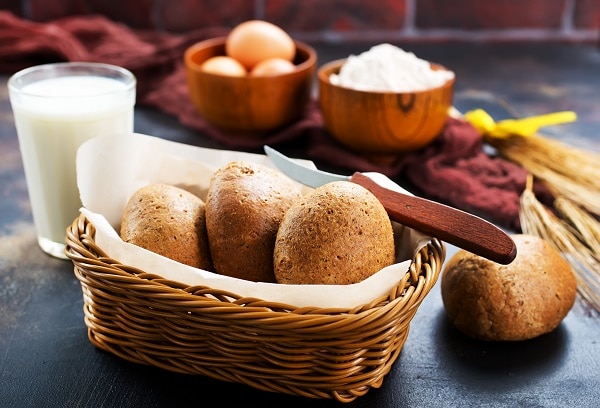
So, we put an end to our list with gluten. It is a protein found in barley, wheat, and rye products. For many people experiencing anxiety, gluten could be a trigger to the symptoms. Also, people with gluten intolerance are at higher risk of depression and anxiety. Cutting down on gluten could be the best step for managing your stress.
What to Eat to Manage Anxiety?
- Salmon – Salmon is very beneficial for anxiety due to Vitamin D and omega-3 fatty acids. Also, EPA and DHA regulate dopamine and serotonin in the body, which can have a relaxing effect.
- Chamomile – Chamomile is an herb that may help to reduce anxiety. The high amount of antioxidants present in it can reduce inflammation.
- Turmeric – The active ingredient in turmeric known as curcumin lowers anxiety by reducing inflammation and oxidative stress in people experiencing mood disorders.
- Nuts – Nuts like almonds are an excellent source of Vitamin E. Lack of Vitamin E is linked to mood disorders.
Wrapping Up
If you’re experiencing chronic stress or anxiety, you might be trying to manage it using different tactics. If some of those work for you, continue to use them but pay close attention to your diet. Changing your diet and nourishing your body may also help you in the long run. Now you know that you can manage your anxiety from the comfort of your very own home.


